Kate Bowler: I’m Kate Bowler, and this is Everything Happens. I’m a historian, author, aggressively, fast walker. But lately, in a world that promises endless progress, even now in a pandemic, I realized I just need to be a person. It’s hard to give up on the feeling that the life you want is just out of reach. If only you tried to eat this food, find that relationship, just get the kids graduated or the parents this kind of care. Only then will I feel different. Better. Whole. But that’s not the way this works. When I was 35, I was diagnosed with stage four cancer. And here’s the very fun thing about that. The world loves you better when you are shiny, when you are cheerful, when you still believe that your best life now is right around the corner. I’ve written multiple books on the history of the idea that you can always fix your life. So I’m going to be the one to say it. There are some things we can change and some things we can’t. And it’s OK that life isn’t always getting better. We can have beauty and meaning, community and love, and we will need each other if we’re going to tell the truth. Life is a chronic condition and there’s no cure for being human.
Kate Bowler: This is a strange distended moment, the sameness of a world that groans for change, we need justice for all and a vaccine for these seven point nine billion people who woke up this morning. We need beauty that stirs our hearts and affordable health care for the parts of us that keep breaking. We need things to do because sometimes we are tearing hair out, bored and then wait. Why do I have so many things to do today that I could scream? And why isn’t there any season of Ted Lasso yet? There is hope for someday, but someday is not now. There is a Christian version of this story, and it’s one that people around the world recognize this week, it’s called Holy Week. It begins with Jesus welcomed like a hero. Expectations are soaring. He will fix everything. But by the end of the week, his best friends betray him. He is convicted as a criminal and sentenced to death. He will rise from the dead and someday bring this world to a beautiful conclusion and wipe every tear from every eye, there is hope for someday. But some day is not now. And here we are living between Good Friday and Easter Sunday before the cure or the vaccine or the answers you seek or the relationships and money you need. We live here before the heartbreak is over. Perhaps it is here we might need to learn how to pray. You might be wondering, but, Kate, I know you don’t know me, but prayer really? That seems a bit sanctimonious. What if I don’t believe in God, or at least I don’t believe that prayer works? What if I’m not the kind of person who prays? Why are you being so bossy about this? Full disclosure, I am not an amazing prayer, but I do love people who pray, and today I thought we could talk to a wonderful person who can help give us a little bit more spiritual language to be here. A little scared. A little disappointed. A little hopeful. The Reverend James Martin is a Jesuit priest, author and editor at large of America magazine. He’s the author of many award winning books like Jesus A Pilgrimage Between Heaven and Mirth and his latest Learning to Pray. He is a regular cultural voice on the subjects of religion in the media. And he is the official chaplain of The Colbert Nation. As in Stephen Colbert, no big deal. Prayer, he believes, is for everyone. Believer, doubter and no thank youer. That’s a new word I just came up with right now. Father Martin, I hope you like it. I am so glad to be speaking with you today.
James Martin: My pleasure. Good to be with you.
Kate: I’m always very interested in the lives of holy people, but they tend to be a little bit, I don’t know, inaccessible. Like they’re always having wondrous visions of the Lord before preschool. I’m sure that’s exactly what happened to you.
James: I went to the University of Pennsylvania and studied at the Wharton School of Business and I took a job with General Electric. This was in the early eighties, probably before you were born. And I worked for GE for six years. I had a great time. And then I just felt like I was in the wrong place and picked up a book by Thomas Merton, the Trappist monk who I know, you know, and that just changed my life. I just thought, this is a better way. I mean, it was I didn’t see a vision. I didn’t have a vision or hear voices. I just felt this attraction, which is how God calls us through our desires and our attractions. And now, you know, ended up as a Jesuit priest.
Kate: I’m sure you get these stories all the time. I have a wonderfully mixed history with the Catholic Church. I was, for instance, kicked out of my all girls Catholic school, which is actually a story I cherish. They had been giving out what they called like a jug “judgment under god”.
James: Oh, I know jug very well, yeah, that’s a very that’s a big Jesuit phrase, right.
Kate: Yes. And I was it turns out that’s how I found out exactly how many wiffle balls there were in St Mary’s Academy when I would count them. That’s also how I discovered they had three unicycles, which was glorious. But for years afterwards, I worked for Jesuit priests who I love more than everyone. I got to help them get ready for mass and bring out all the precious things and chat with my very favorites who I still keep in touch with. And so, look, my lovely Jesuit friend, I know every kind of Christian has a different angle on the life of faith, but what is especially Jesuit about your understanding of prayer and what can we learn from that?
James: I would think that it’s the idea that this is not specific, to just Jesuits, but it is something Jesuits really love, that God meets you where you are, right, that God meets you where you are, and that therefore the way that you like to pray, the way that Kate likes to pray, the way that Jim likes to pray, the way that whoever’s listening to this podcast likes to pray is where God is going to meet them. And so you don’t have to pray in the way that your neighbor does, your friend or your priest or your spiritual director does. And that’s really consoling for people because it it relieves them of this notion that there’s one right way to pray. There’s no should. There are very few shoulds in the spiritual life.
Kate: I know I was teasing you about being a spiritual professional. I do get that a little bit sometimes because I teach at a divinity school. That awkward moment like on a plane when we used to go on planes and then people say, like, what do you do? You’re like, oh, I you know, and then all of a sudden they’re apologizing for swearing or drinking the tiny plane wines. But why is there no such thing as an expert in prayer?
James: Because we’re always learning. It’s like being an expert in love. Imagine if someone said know, let’s say, you know, you’re married for 50 years. You probably ask, you know, the couple, are you an expert in love? They would probably laugh in your face right? And that’s the same with prayer, we’re always learning something new. And last year, well, two years ago, when we still went on retreats, I was on a retreat and my spiritual director, my retreat director, suggested a new way of praying. And I said, no, I can’t do that. And he pushed me and I I did it and it went really well. So, you know, here I am after 30 years as a Jesuit, but I’m still learning. So, yeah, we’re never we’re not I mean, I think we can get used to it and proficient at it. You know, it’s like riding a bike. But I don’t think we’re ever experts.
Kate: Yeah.
James: Thank God right? Otherwise we would be boring.
Kate: But then how will I find my superiority wielded over others?
James: Yeah, right. That’s so sad.
Kate: I know.
James: Talking about a holy week. I mean, this is Jesus, you know, I mean, in the end, you know, he subordinates himself and he gives everything up. So you’re right. It’s not about, it’s about downward mobility as one Jesuit once said.
Kate: I love that. Yeah. Yes. That is my very favorite part of still being a Christian, is that we are we just are on the side of the losing team.
James: Yeah. Right. We’re on the side of Jesus and that that is the best part of the best part of being a Christian is a person and it’s Jesus.
Kate: Yeah. Yeah. I would have loved the end of that sentence, and it’s Bob I actually haven’t I.
James: That’s right. That’s right. And it’s the money. It’s all about the money.
Kate: And it’s the glory.
James: That’s right. Yes, that’s exactly right.
Kate: What is prayer exactly, and I know it sounds like a simple question, but it sounds like it’s got a layered answer.
James: No, it’s a good question. I think it’s an important question. People don’t know what prayer is. I go through a lot of definitions in the book, which I will spare you. There’s five or six definitions and I end up with prayer is a conscious conversation with God that takes place within the context of a personal relationship with God. And so it’s intentional. Right. And it’s a two way street. Now, what does that mean? When people hear about listening to God, they say, oh, my gosh, what does that mean? Like you’re hearing voices or seeing vision said, no, it’s about paying attention to what happens in your prayer as in as well as in your daily life. But it is it’s a conversation. It’s a back and forth. It’s you sharing yourself with God, and it’s also God’s sharing God’s self with you in different ways. So it’s the conversation I think is my favorite way of looking at it and within the context of that personal relationship.
Kate: Mm hmm. Where does that desire come from then to do it? Like, I’m just thinking of different moments in my life. They led to very different kinds of prayers, like prayers in the hospital are man, there’s the prayers when you’re in pain, like, please, God, please make this stop or prayers of complete awe and wonder where you just you can’t even believe how lucky you feel just to be breathing.
James: How else would God draw us closer? Right. Other than by awakening in us that the desire for prayer. And so that can really help people in the beginning of the spiritual life. And I’m sure you know this because once they’re sort of encouraged to understand that this is where the desire comes from, they feel less alone and it’s less, you know, Kate or Jim just being curious, like I’d be curious about, I don’t know, like, you know, hang gliding or parasail. I’m just trying to pick something, you know, like it’s kind of a curiosity, rather, it’s a response to a call from God. And that makes people a lot more comfortable with it.
Kate: This is kind of a strange question, so bear with me. And when I was in my first year of cancer treatment, I really started really doubling down on my use of the F word much more frequently. And to be honest, I really picked it up during the season of Lent. I remember it very clearly. I was on a six hour break from the hospital and my friend and I went to this thriving little Catholic Church near the hospital where all the lovely people, I’m sure, wanted to hear ways in which Lent was making us a tiny bit better. And the priest used the phrase tiny bit as how he described how this might work, like think about volunteering once or twice or be nice to people at work or don’t forget your gifts are special. And then he doled out the ashes with all the cheer of Snow White, sending her industrious dwarves off to the mines. And I lost my mind. I started yelling things in the car, like people are trying to Easter the crap out of my Lent because all I wanted was honesty. So how can prayer be a place of radical honesty for us?
James: So many people feel that their inappropriate emotions in prayer anger is a big one. Disappointment, frustration. Oh, I shouldn’t be angry at God. I should be more grateful. And, you know, we’re all supposed to be grateful and work all the gratitude. But sometimes we’re just look, if you’re going through cancer treatment and you’re going through chemo and radiation and I had radiation a year or two ago for benign tumor and, you know, I wasn’t it’s not something I wanted. And so can you be honest with God about these things? That doesn’t mean all you do is complain, but it does mean that if you’re upset or worried or sick or frightened or despairing, even to not express that is going to get in the way of your relationship because it’s going to be this big block there.
Kate: I did feel very I think a lot of the joyful profanity of that season for me was I was feeling very censored by religious people in particular about whether or not, you know, when you’re sick, people love to frieght you with their own questions about God and whether you’re confident enough about heaven or, you know, thrilled enough about where God has really taken you in your life. Like, well, it took me to a super garbage place. I think I yeah, it did help just to say I am so bleeping angry right now. I because I felt I felt sometimes like Christians just wanted me to die very politely, just gently, just gently into that good night.
James: Well, you know, look, are a lot of people who are angry in the scriptures. I mean, how long. Oh, Lord. That’s Psalm Thirteen. That doesn’t sound like they’re too happy about stuff. And hey, Jesus gets angry in the Gospels. Jesus gets angry in the temple. He gets angry at his disciples. He calls them a faithless and perverse generation. I mean that’s really strong. He gets angry at the Figtree, you know, so he’s upset and he’s human. How can we not be angry from time to time and how can we not express that to God? Now, the key is, you know, what’s God’s response to us? Were we noticing it, were we’re seeing it? And can we be open to that, too?
Kate: Yeah, well, I like the response from God where I just pray something very specific and then I receive it.
James: And it happens. Right.
Kate: I remember very clearly my very first incredibly transactional prayer when I prayed for a guy named Matthew to really, really like me. And then he did.
James: The miracle. Thank you, God, my will be done. And look, I think, you know, we’re laughing about that. But it’s okay to pray for what you want. I mean, that’s you know, you’re standing before the creator of the universe. If you have really, you know, in the situation you’re talking about, if you have cancer, you’re struggling, you’ve lost your job. How can you not ask for that? And I’m going to drop I’m going to drop a name that’s from Carl Rahner.
Kate: Well done.
James: I just like him.
Kate: I read, I once had to read an entire year of Carl Rahner
James: My sympathies.
Kate: He has a lot to say. Man Wow. Thanks. Systematic theology. Just keep on writing more volumes, please.
James: He wrote a beautiful book called The Need and Blessing of Prayer. And he says that Jesus is the model prayer, which actually changed the way I pray because it’s so beautiful. Honesty, trust and acceptance. First honesty. Right. Honesty. He’s you know, he’s honest, you know, at the Garden of Gethsemane, you know, we’re talking about this during Holy Week. Remove this cup. I mean, that’s honest. And then trust. Right. So at the tomb of Lazarus, he says, I know you hear me. And then acceptance. Right. Not not my will, but but your will be done. And so but you know, a lot of people, which is which is why we’re talking about this. A lot of people short-Circuit the first step, which is honesty. You can’t just go right to thy will be done, it’s just it’s not honest. At least as I see it. I think people at least need to be able to be honest in prayer and express themselves.
Kate: I like that honesty, trust, acceptance. If I’m interpreting step two. Right, we sink into the possibility that something might that something might happen or that God hears. I think weirdly, that is something I learned from the 10 years I spent researching the prosperity gospel because I was involved with all these folks who believe that God wants to give them health and wealth and happiness. And while I disagree with the the nature of the promises that we are, the nature of the guarantees for life here on Earth. I was continually blown away by their joy at just imagining what God might do, it was it was like it was it had wonder built into it that I found really kind of lovely to be around as opposed to some of the churches that I joyfully support, who when I got sick, you could tell they were like a little bit nervous about praying for me just in case, like as if as if we all had to protect our reputations, like, oh, let’s let’s let’s not push the envelope here. You have stage four cancer.
James: Meaning meaning because it might not happen. We would put ourselves on the line. Yeah. I think you have to I think it’s somewhere in between because I think that, you know, I think God wants good things for us. But simply because we believe in God does not mean everything is going to go right. And, you know, I hate to say it, but, you know, look at Jesus. Jesus was crucified, you know, my gosh. You know, all the saints who suffered and people who are holy, who suffer. And that doesn’t mean they’re doing something. I mean, as you know, you’ve studied this more than I have. It doesn’t mean they’re doing something wrong. Yeah, that’s that’s part of life. But I do think you’re right. There is there is that call for a trust, but there’s also call for that’s where the acceptance comes in. You know, and that’s this is what Jesus is inviting us to.
Kate: I don’t like that.
James: I know.
Kate: I don’t like where this is going.
James: But the point is that, the key is the relationship with God, what enables Jesus to do that is that he has this deep relationship with God. And that’s what enables us to to face these crises.
Kate: And if people feel kind of weirded out by the word relationship with God, like, what do you say to them?
James: I think the key is you start to ask them or invite them to talk about places where they feel that they’ve encountered God. And almost everyone has that, you know, some moment in their life or moments usually right. Where, you know, they’re at the birth of a child or it’s a moment in nature or something in a in a church or hearing a hymn or there’s usually something that people can point to, usually many things. And then you say then you say to them, look, you think that that was God. And they usually say, yes, I believe that. I believe. And then you say it sounds like God was reaching out to you. Yes, that’s true. Well, and it sounds like God wants a relationship with you. And then they say, OK, I get it, because usually they think it’s some weird, weird thing, but it’s basically noticing where God is active in your life where God is communicating with you. So it’s just usually getting them to kind of see that it’s already happening. It’s already happening. They just need to be invited to see it, encouraged to see it.
Kate: It’s a nice message. You’re like, too bad it’s already there.
James: Absolutely. It’s very uncomfortable for some people, but for other people, you know, if you get them talking one on one there and I think it’s a service too it’s a ministry, too. And this is the Ministry of Spiritual Direction to allow people to see where God is already present. That’s a great thing to be able to do for someone. Then their eyes are kind of open. Then it’s like, wow, that’s that’s I didn’t realize. I wasn’t recognizing that.
Kate: Yeah, yeah. They get a different plotline. That’s nice.
Kate: We have this we have this lovely little community here at the Everything Happens project that really carries a lot. There’s a lot of nurses and doctors and health care workers and caregivers and people who are really losing things that are dear to them. A marriage, a child, their health, like the loss of, as one of our guests put it, like the loss of an imagined future. And how might you tell them to pray or even to start approaching prayer if they’re if they’re really in the midst of maybe one of the hardest seasons of their lives?
James: A simple thing would be their Christian imagining Jesus sitting across from them, sitting next to them or walking with them and just talk to him. You know, kind of pour your heart out, because I think for people who are in pain, that’s one of the most important things, to be honest and not to edit yourself. Right. And then be attentive again. I talk about this in the book too what comes up in prayer, emotions, desires, insights, memories, feelings, words and phrases, images. Be attentive to what comes up. Every person going through a tough time that can be really helpful. The other thing very briefly is called the examination of conscience. Which is a review of the day that you do at the end of the day. And one of the pieces of it is gratitude. And for people that are going through tough times, that’s very helpful because we tend to focus only on the difficulties. And this is not to say you deny them or you ignore them, but to see that they are side by side with the good stuff.
Kate: Yeah, that did help me. Not as you know, that I am an aggressive nonbright sider, but I put a big whiteboard over my fireplace and I just put down all the tiny little things like people who came to visit, food that was dropped off, the warmth of people’s hands, like just all the little tiny things that felt like little bread crumbs. That I could follow to feeling loved.
James: And they were. And you were you were loved and you are loved. And it is one way that God has of reaching out to you. And that’s and I think, you know, it’s funny when people hear this, they might think, oh, it’s just like a it’s just like you’re papering over your difficulties or your cancer diagnosis or your treatment. No, no. I mean, it’s side by side that the pain is still there. But as well as the other stuff, I think the difficulty is that when we’re in these moments and it’s natural, it’s human, we don’t focus at all on the blessings. Speaking of using profanity during prayer, I was talking to my spiritual director and I said I was so angry at God last night, but I said, how about some bleeping help? And my director said, that’s a good prayer because it’s honest. And I said, well, OK. And he said, but this I thought this was so helpful. He said, but are you being totally honest with God? And I said, What do you mean? I, I was, you know, just spouting off at God and telling God how angry I was. And of course, I was being honest. And he said, well, OK, that’s one part of your life, are you sharing with God the other part of the other parts of your life? I said, what do you mean? And he said, Well, you’re going to present your life to God and you present it in its totality, not just the stuff you’re annoyed by. If that’s the only focus of your prayer, in a sense, it’s actually not being honest with God. So, so you’re saying the breadcrumbs and the stuff on your whiteboard that if you were to ignore that and say, oh God, my life is only about this, you’re kind of being, in a sense, you’re only showing God part of the picture. So that was really helpful for me, you know, to be honest. But also in the totality of your life.
Kate: I’m just thinking of, I mean, the moments when I’m in the greatest pain or sadness or despair. I mean, part of why I stop noticing is just because every detail is too awful. Right? Like, you get this like you’re your brains on a loop frequently. If it’s in crisis and tries to shut down, sometimes you shut down your own body because you don’t want that information from your body or you tried talking to people and that relationship was painful or this person sucked, etc.. I’m not thinking of anyone in particular. I mean, moments that were really just like carried me through the worst was when I could somehow open myself back up to noticing the kinds of things you’re describing. Like I’m like one of my best friends during that first year of cancer ended up being my nurse, Meg, who just because I was able you know, I’m sitting there for hours and hours and hours and she happens to look like a tiny elfin princess. Then suddenly my life isn’t just cancer. It’s like, oh, my gosh, what is going on with Meg?
James: And I guess the thing is, that’s just as real as the cancer was. I mean, Meg was just as real as the cancer was. And to see those things side by side and it doesn’t make things go away. But to not notice her, you know, in a sense is is to not notice reality. And I think, you know, there are there are forces that pull us away from God and forces the pull us towards God. And I think the forces that pull us towards God are those forces that really give us hope. This is this is Jesuit spirituality. You know, the voice of God is the voice of hope and uplift and encouragement and the voice of you know, the voice of the one that pulls us away from God is the voice of despair and hopelessness. And despair and hopelessness make us ignore the stuff that’s good. Life is it’s difficult, right. But if it’s only about the complaining and only focused on the negative, it’s kind of it’s kind of false.
Kate: And which could include it’s never going to get better. Nobody cares about you. You’re alone in your problem.
James: Yeah, it will. Nothing can ever change.
Kate: It’s funny, the distinction I’m trying to make when you’re saying this is between the modern therapeutic culture’s obsession with mindset and the distinction you’re making here with prayer as a kind of like widened bandwidth for allowing the truth of a situation to pour in, because one version of it is like I think the modern therapeutic version is like, well, you just have to control your thoughts and you control it in a certain way. And prayer is just another way that you can channel it in a certain direction. And I know that’s not what you’re saying, but I know that’s what a lot of people imagine as prayer.
James: Mindset in the sense that you mean keep a positive attitude or mindset in the sense of kind of cognitive behavioral therapy where you feel what you tell yourself. Is that the idea?
Kate: I guess a bit of both. I, I would imagine that a lot of people I mean. Right, like since the late 19th century, American culture has been obsessed with the ideas that our thoughts determine us and that the major war of being human is in directing the work of your mind.
James: And I am a fan of cognitive behavioral therapy, which attacks sort of irrational thinking and thinking that’s wrong. So, you know, for example. But I think prayer actually fits into that. Because cognitive behavioral therapy and mindfulness is a look at reality, right? So in other words, so to say things can never change, OK, something like that, things will never get better. OK, first of all, that’s irrational, right? And things can change. Or I’m the only one that this happens to or I’m always getting sick or so. So to challenge these things I think is actually helpful and healthy. But part of prayer is inviting you into that space, which enables you to do that, because if you’re if you’re being totally honest with God and if you’re looking at things that you’re grateful for, you will realize that you are not the worst off person in the world or in the universe because you do see that whiteboard, right? You know, look, from a religious point of view, the and we’re talking during Holy Week. So it’s a very good thing to talk about. The disciples on Good Friday and Holy Saturday were locked behind closed doors, which is such a great image because they’re terrified and, you know, they had a reason to be terrified. Their leader was just crucified and the Romans were probably looking for them to or so they feared. But they thought nothing can come from this, nothing good. Everything is over. Nothing will get better. Nothing can change. And that’s not the message of Easter. The message of Easter is nothing is impossible with God.
Kate: I like that so much. I like how it doesn’t deny the awful reality, but still asks us to maybe, like, put a little asterisks beside it, that that that maybe something beautiful can still happen because God is involved.
Kate: I find it really hard to pray about my stuff. I think maybe also just because I’m a human bulldozer, I find it very hard to pause. But lately I find it very easy to just love blessing people like how can I infuse this person with the sense that God is with them in their work, in their breakup with their partner, in their inbox, in their having to postpone a funeral? Is is praying for people like that? Is it like blessing them?
James: It’s attention. It’s not only asking God to help them, but it’s allowing God to ask you to help them. Right. So you keep praying for someone who’s lonely, lonely, lonely, and you never call them or text them. Then you’re praying about a friend who is lonely and you feel sad. You say, well, where’s that coming from? Was that not God’s sadness for that person? Can you see that as an invitation? Or if if you if you’re in your praying and you have a desire to help them? I wish I could, but where is that desire coming from? That desire is coming from God. So this is what I mean by listening to God, listening for God, listening to those emotions, insights, memories, feelings, desires, words and phrases, images that come up and taking it seriously that this is this may be God communicating with you, because, again, how else would God, you know, affect God’s desires in the world for that person other than working through you?
Kate: Hmm. Lightning bolts maybe or sudden acts of no, fine. I hear you. I’ll do it.
James: It’s the difference between, again, with the relationship model. Let’s say you and I are best friends. We are best friends, of course. And someone says, OK, who’s your best friend? Kate. OK, we’ll do it. What do you do with her? Well I see her at parties and where we work in the same place? And I see her all the time. Well, do you ever spend any one on one time with her? No. Why not? Well, because, you know, I see her all the time. We’re at work. You know, we work together nine to five. You know, I see her at parties. You know, we live in the house together, whatever. But do you ever spend, do you ever sit down and say, OK, now we’re going to have some undivided attention? No. And that’s what people do with God. And it’s not here’s the point. It’s not to say that. And I’m using the sort of the crowd time and the daily time as sort of our regular lives. One, you know, the sun beats down on you or you notice something that it’s not to say that God is not active in those other times when you’re walking around life. But it is to say that if you want to deepen your relationship with God, you do need that intentional time. You just do the same way I would need it with you.
Kate: Yeah. Which we will obviously, once we’re done recording, set aside a lot of international.
James: Best friends forever.
Kate: I’ll make our bracelets. Father, this was a complete joy. I am so glad that two best friends finally got to meet.
James: Two BFF’s. That’s right. BFF’s. I can’t even say it. Listen, it’s been great to be great to be on the show and yeah, I hope we can do it again.
Kate: Honesty, trust, acceptance. Sometimes I just don’t know how to get there, but I can see it the desire to see the world as it is to believe somehow that I’m not alone there and to accept that most of what happens in my life is not under my control, regardless of how entirely benevolently I would run the universe if asked. So if you like me, don’t always know how to move through this strange season when there is hope for someday, but someday is not now, here’s a blessing for when you might not know how to pray or want to. Blessed are you in this terrible, wonderful now. Fumbling around for the right words. You need so much and it seems impossible to say at all. Blessed are you for whom prayer feels hopeless, disappointing, futile. Blessed are you in your radical honesty, in the ways you speak of your grief. The long, sleepless nights in an empty bed. Of the physical pain you feel, the joints that don’t work like they used to, your brain fog or chronic migraines, who speak of your loneliness, the empty home or nest or womb. Blessed are you who have the audacity to ask for the miracles you need, the healing or a new friend or a redeemed family. Blessed are you as you learn to trust, trust a God who hears, who listens, who hasn’t left your side, who prays on your behalf, interpreting those deep groans you can’t quite put into syllables or sounds. Blessed are you, as you settle into acceptance. And blessed are we who live here in the someday, but not now.
Kate: I know that not everyone who listens to this is religious, and I have to say how grateful I am that you stick with me and that we can have this mighty little community of compassion. If you wouldn’t mind heading over to Apple podcasts to leave a review. I’d love to hear more about why you listen and what topics or guests you’d like to hear from. You are a gift and I don’t take you for granted. Thank you, always. Today’s episode was made possible by our partners, Lilly Endowment, the Duke Endowment and Duke Divinity School, who support our faith and media project. We are so grateful for their generosity and investment in what we do. And, of course, my team, Jessica Richie, our executive producer, Harriet Putman, our associate producer, Keith Weston, our sound designer, and the rest of the Everything Happens crew who make this project so much fun. Dan Wells, AJ Walton, Mary Jo Clancy, J.J. Dickinson, Launa Steward, Kelly Dunlap, Erin Lane, Jeb and Sammi, thank you. This is Everything Happens with me, Kate Bowler.
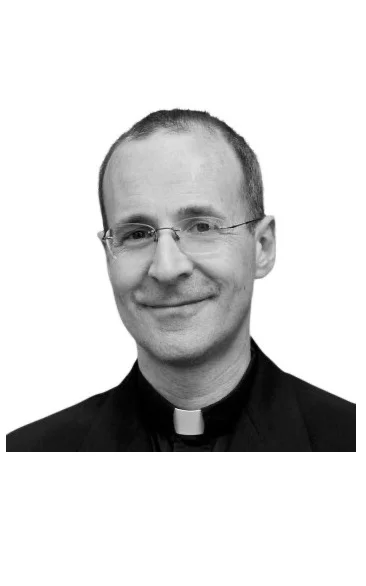

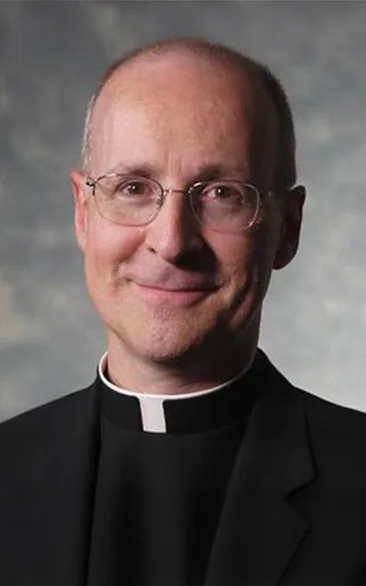
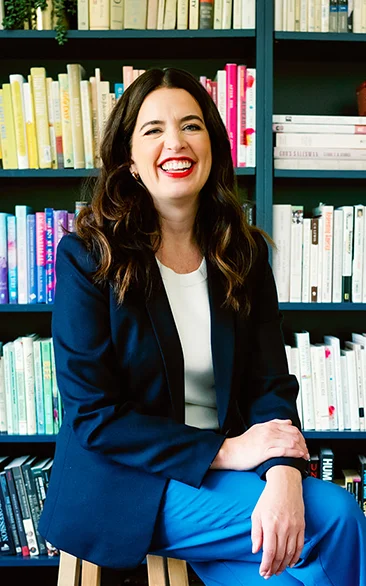








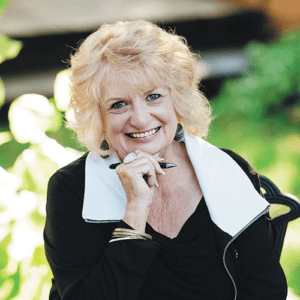
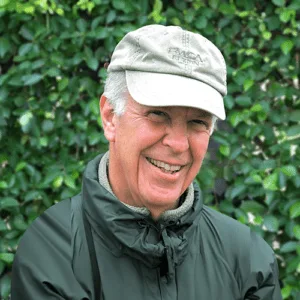


Leave a Reply